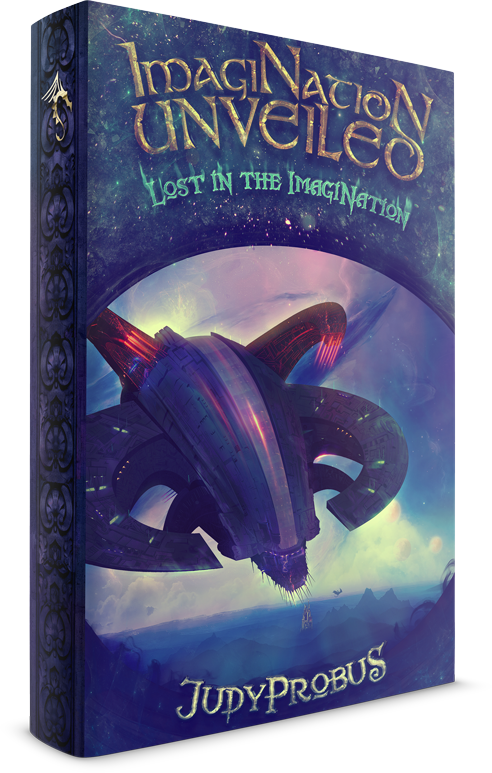From inkling to novel, here are a few things I learned from personal experience on the writing road. I hope you will find them helpful.
1. And you’re off!
You should know that writing a novel is not a walk in the park. I think it’s more like an uphill slog or trying to stay afloat while crashing atop class four rapids. What a ride! Try not to drown in the sea of “how to” and “how not to” write recommendations. You can derive some value out of reading and listening to general writing and stylistic advice, but utilize your own strengths and trust your own instincts because that’s what will make your writing unique. Anne Sexton says it best: “Put your ear down close to your soul and listen hard.” Some days are harder than others when it comes to being able to hear what your soul is saying. Life will throw down unique challenges on everyone’s writing course. But it’s all about believing in yourself until you cross the finish line – oh, what a feeling!
2. The pen is mightier than the sword
Place pens and notebooks in strategic locations. I keep one in my nightstand, car and purse. Ideas happen frequently when you least expect it – in the shower (although I still haven’t found a waterproof pen), in the middle of the night, while you’re driving… be ready.
3. Beware!
Not all computers are equal. My first computer got too hot after hours of usage and the lettering on eight of the keys wore off. I have no such complaints about my MacBook Pro. Although having a good hammer won’t mean you can build a house; having the right tools can and do help get you closer to your goals!
4. Write Mobile
The great thing about writing is that one can take it anywhere. Sometimes I like to write in solace. Other times, the noisy activity in a park energizes me. I’ve written on planes and ships, in cars and hospitals, at sporting events… you get the idea. A good carrying case is a wise investment.
5. Play it again, maestro
Music is a powerful writing tool. I often listen to music before I write to get in mood/character for a particular scene.
6. Aww, geez, not again!
Lots of writers, especially new ones, tend to repeat certain writing quirks and mistakes. Learn what they are. Learn how to avoid them.
7. I’ll trade ya’
If you can find a writing buddy that will read/evaluate your progress in exchange for you reading their work, awesome. Just be careful not to get too many cooks in the kitchen. Beta readers can also supply useful feedback.
8. Hit the road, Jack and don’t you come back no more, no more, no more
Sing these words every time you begin to doubt yourself. Doubt usurps creative juices and snuffs out dreams. Doubt is a big no, no. Don’t go there.
9. Back to the drawing board (keyboard for writers)
James Michener says, “I’m not a good writer, but I’m a great rewriter.” I find comfort in these words. Persistence is key.
10. Time Out
We are humans, not machines. People get sick. Writers experience blocks. Push through or step back? If you’re up against a deadline, pushing through is your only option. Otherwise, rest and relaxation does clear the head and allow one to see things from a new perspective. It also helps you avoid burnout. I use downtime to think about my storyline, then forge ahead with revived gusto.
11. So many books, so little time
Read often. Besides being fun, it’s a great way to learn from other authors, expand your vocabulary and sharpen your style.
12. Pan for gold
Dig deep and sift through research. Enlighten yourself and lend credibility to the write. It’s always exciting to discover a golden nugget of info that you can then gift to your readers.
13. To Tweet or not to Tweet? That is the question!
Twitter is a great way to connect with people from all over the world. The creative community on Twitter is friendly and inspiring. Alas, one must balance their time and energy. Keep your ultimate goal in sight: finish the story.
14. 911!
Be ready for an editor to spill red ink all over your precious manuscript. It’s their job. Reevaluate. Try harder. Bring your A game. See tip #9.
15. No pain, no gain
I think of the imagination as an invisible muscle. The more I exercise it, the stronger it seems to become. I write something everyday. A letter, a poem, a paragraph, a chapter, a blog… something.
16. In the zone
When you feel it, you will know. The first time tears rolled down my cheeks while writing it freaked me out a little, but then I realized how in the moment I was. Bullseye.
17. Give me five
A compelling read evokes all five senses. Imagine yourself in the scene with the characters. See what they see. Smell what they smell. Hear what they hear. Taste what they taste. Feel what they feel.
18. Take another look
I once asked #1 New York Times Best Selling author Sue Grafton for writing advice at a book signing. She told me to, “Let the draft set for several months and then go over it again.” Whether you wait days, weeks, or months, re-reading the text with fresh eyes before committing to a final draft is solid advice. If it’s good enough for Sue Grafton, it’s good enough for me.
19. Words matter
Don’t overload the text with adverbs and adjectives. Run away from run-on sentences. “The difference between the right word and the almost right word is the difference between lightning and a lightning bug.” Mark Twain. Enough said.
20. Work it out
Remember to save time for a walk or workout. All the endorphins you generate will make you healthier and fuel the write.
What would you add to this list? Include your comment below.
Write on,
Judy








